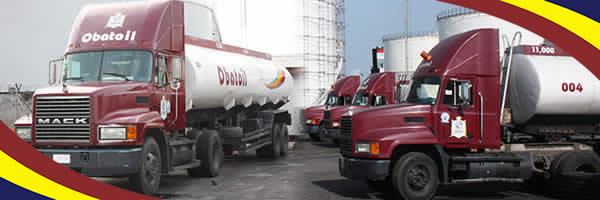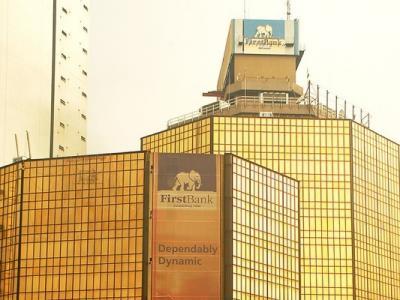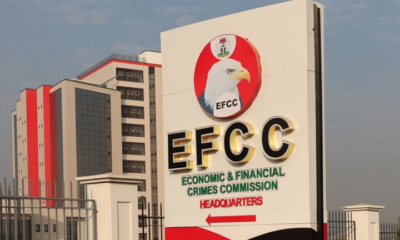Finance
Obat denies alleged N1.2b subsidy diversion

Gbenga KOSOKO with Agency report
LAGOS-OBAT Oil and Petroleum Limited has said the allegation of N1.2 billion oil proceed diversion against it by Petrocam Trading Nigeria Limited is legally unfounded, factually incredulous and completely illogical.
In a rejoinder, the Head of Legal Unit of Obat Oil, Seun Bakare, said the oil firm never diverted N1.2 billion, as claimed by Petrocam.
 Bakare said Obat’s tank farm was not shut down by the Economic and Financial Crimes Commission (EFCC).
Bakare said Obat’s tank farm was not shut down by the Economic and Financial Crimes Commission (EFCC).
The spokesman said Obat was invited by the anti-corruption agency, following a petition Petrocam’s Managing Director, Mr. Patrick Ilo, allegedly wrote to the commission through its solicitors.
The Nation reported last Friday that Obat’s tank farm was shut down by EFCC, following an allaged diversion of N1.2 billion subsidy money borrowed on its behalf by Petrocam from Sterling bank.
Obat said: “Our attention has been drawn to a series of viral newspaper publications on alleged N1.2 billion subsidy diversion claimed by the Managing Director of Petrocam Trading Nigeria Limited, Mr.Patrick Ilo, against us, Obat Oil and Petroleum Limited. We hereby state categorically that there was not time Obat Oil diverted any N1.2 billion, as claimed by Petrocam. It is pertinent to state clearly at this point that there was never a time that our tank farm was shut down, as we are fully in operation. We were only invited by the EFCC based on petition Mr. Ilo wrote to the commission through his solicitors.”
On the firm’s involvement in the controversial subsidy, Bakare said: “Sometime in 2014, Petrocam Trading approached Obat Oil and Petroluem Limited for a business transaction with Petrocam, making an offer to finance the importation of PMS (petrol) through its bank, Sterlin Bank, for Obat Oil. Both parties signed a service agreement to begin the transaction and Petrocam did undertake the importation of 15,000 metric tonnes of PMS in lots – either by its own resources or through bank.
“During the course of the business transaction and at conclusion, Petrocam failed to fulfil its obligations under the service agreement. For instance, Petrocam paid N3 per litre of the allocation, as opposed to the agreed sum of N5 per litre. This was the first act of breach displayed by Petrocam Trading.”
Bakare said efforts to settle the outstanding payment failed and the business relationship collapsed.
The rejoinder added: “Despite our best efforts at attempting to get the issue of outstanding payment resolved and …hoping that business could still be done with Petrocam, the business relationship broke down. We invited Mr. Ilo for reconciliation on several occasions to enable the parties reconcile their accounts based on the transactions and resolve the issues, but he declined. Rather than agree to our invitation for a joint account reconciliation, Mr. Ilo and Patrocam Trading curiously obtained and published our UBA statement of account without our consent, permission and authorisation. It became obvious that Patrocam was shying away from the facts because he had skeletons in his cupboard.”
Obat said his tank farm was not shut, yet it added: ”We, therefore, denounce the invasion of our premises by agents of the state acting on lopsided reports presented by a party that has some interest to serve.”
Ilo insisted last night that his position against Obat was true.
NATION-
Business
Nigeria pays US$4.9 billion on petrol subsidy in 2024- NNPCL
It was however noted by Biztellers.com.ng, that although subsidy is back in effect, the main reason for that is the increasingly weak state of the Naira and the country’s extreme dependence on products importation. Also unlike the previous subsidy era, where several oil marketers were getting free subsidy refunds for unverified product importation, this subsidy era is witnessing only one importer, the NNPCL, which in effect is the sole receiver of government subsidies.
Yemie ADEOYE
INSPITE of the official position of the Nigerian government that the controversial petrol subsidy is gone for good as announced by the President on assumption of office, the state owned Nigerian National Petroleum Corporation Limited, NNPCL has disclosed that petrol subsidy is still fully operational in Nigeria, although, under a different identity.
Umar Ajiya, Chief Financial Officer at the NNPCL, disclosed that it cost the company a staggering N7.8 trillion (US$4.9) to cover this price gap in the first seven months of 2024.
Rather than simply referring to these claims as subsidies, he stated that the company is merely managing the price difference in petrol imports on behalf of the federation, stressing that this should not be misconstrued as a return to subsidy payments.
![]() This revelation has reignited discussions on whether the NNPC is indirectly offering subsidies, a concept typically defined as selling a product below its cost price.
This revelation has reignited discussions on whether the NNPC is indirectly offering subsidies, a concept typically defined as selling a product below its cost price.
Documents reviewed by Biztellers.com.ng showed that the term “subsidy” was used extensively in official correspondence between the NNPCL and the presidency, particularly in reference to the “shortfall.”
Recall that President Bola Tinubu reportedly approved NNPC’s request to utilize the 2023 final dividends due to the federation to offset these costs.
However, during a media briefing on Monday about the company’s 2023 audited financial statements, Ajiya refuted claims that the NNPC is involved in any subsidy scheme.
Ajiya further disclosed that the Nigerian government owes the NNPC N7.8 trillion ($4.9 billion) in subsidy-related debts for the period from January to July 2024.
In furtherance of his clarification to the News Agency of Nigeria (NAN), Ajiya insisted that no subsidy payments have been made to any marketer in the last nine years, citing the NNPC’s role as the sole importer of petrol under supply contracts.
He said, “In the last eight to nine years, NNPC Ltd. has not paid anyone a dime as a subsidy; no kobo has been disbursed by NNPC Ltd. in the name of subsidy. No marketer has received any payment from us for subsidy.”
“What has been happening is that we have been importing PMS, which has been landing at a specific cost price, and the government tells us to sell it at half price. So the difference between the landing price and that half price is a shortfall.
“And the deal is between the Federation and NNPC Ltd., to reconcile, sometimes they give us money, so there is no money exchanging hands with any marketer in the name of subsidy.”
Ajiya remained silent on how much of the $4.9 billion could have been remitted to the federation account if the NNPC had not been covering the “shortfall.”
It was however noted by Biztellers.com.ng, that although subsidy is back in effect, the main reason for that is the increasingly weak state of the Naira and the country’s extreme dependence on products importation. Also unlike the previous subsidy era, where several oil marketers were getting free subsidy refunds for unverified product importation, this subsidy era is witnessing only one importer, the NNPCL, which in effect is the sole receiver of government subsidies.
Banking
CBN Denies Currency Devaluation

The Central Bank of Nigeria (CBN) has refuted claims of devaluing the.
Earlier reports suggested that the CBN had devalued the Naira, lowering its exchange rate from N631 to the dollar, compared to the previous day’s rate of N461.60 at the Importers and Exporters (I&E) window.
However, the Central Bank of Nigeria (CBN) released a statement on Thursday through its Acting Head of Corporate Communications, Dr. Isa Abdulmumin, categorizing the report as false information.
In the statement titled ‘CBN Has Not Devalued The Naira’, he said the attention of the apex bank was drawn to the news report by an Abuja based newspaper edition of June 1, 2023, titled “CB Devalues Naira To 630/51”.
However, the CBN stated categorically that the news report was replete with outright FALSEHOODS and destabilizing innuendos, ‘reflecting potentially willful ignorance of the said medium as to the workings of the Nigerian Foreign Exchange Market.’
“For the avoidance of doubt, the exchange rate at the Investors’ & Exporters (I&E) window traded this morning (June 1, 2023) at N465/USS1 and has been stable around this rate for a while.
“The public is hereby advised to ignore the news report by Daily Trust in its entirety, as it is speculative and calculated at causing panic in the market,” the CBN spokesman added.
He, therefore, advised media practitioners to verify their facts from the Central Bank of Nigeria before publishing in order not to misinform the public.
Banking
BREAKING: CBN Increases Interest Rate By 0.5%

The interest rate in Nigeria has been raised to 18.5 percent, up by 0.5 percent, from 18 percent where it was pegged in March 2023.
The Central Banks of Nigeria’s (CBN) Monetary Policy Committee (MPC) resolved to this effect at its third meeting of 2023 in Abuja, on Wednesday.
Governor, CBN, Godwin Emefiele, made the disclosure in the communiqué of the MPC’s meeting, thereafter.
While engaging the media at the end of the two-day meeting, Emefiele, said the committee voted to keep the asymmetric corridor at +100 and -700 basis points around the MPR.
In the view of the MPC, rising inflation rate is traceable to the high energy cost and challenges around the supply chain, among others, which lie outside the corridors of the CBN.
Emefiele said, “The current trend in price development would continue to be monitored by the bank with greater collaboration with fiscal authority to address the drivers of inflation.”
Biztellers reports that the CBN had effected six consecutive interest rate increases, which has seen the rate move from 11.5 percent in March 2022 to 18.5 percent in May 2023.


















